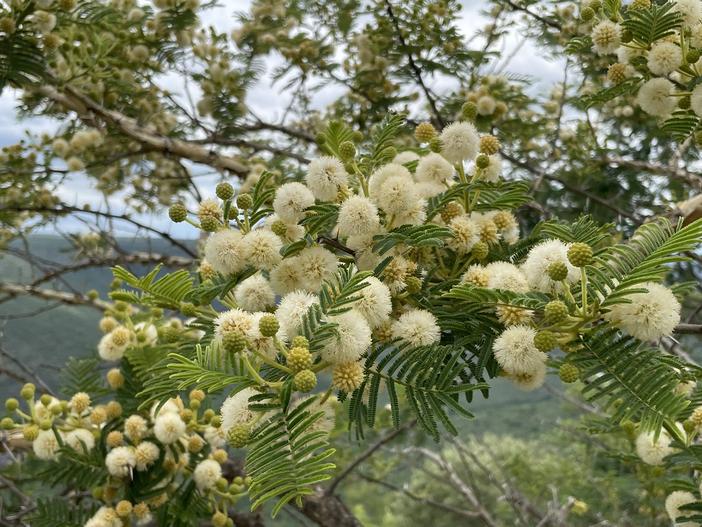Paperbark Thorn
(Vachellia sieberiana)
Paperbark Thorn (Vachellia sieberiana)
/
/

Dr. Alexey Yakovlev
CC BY-SA 2.0
Image By:
Dr. Alexey Yakovlev
Recorded By:
Copyright:
CC BY-SA 2.0
Copyright Notice:
Photo by: Dr. Alexey Yakovlev | License Type: CC BY-SA 2.0 | License URL: https://creativecommons.org/licenses/by-sa/2.0/ | Uploader: Dr. Alexey Yakovlev | Publisher: Flickr











































Estimated Native Range
Summary
Vachellia sieberiana, commonly known as the paperbark thorn or paperbark acacia, is a deciduous tree native to African savannas, grasslands, and open woodlands. It varies in height from 3 to 25 meters, with a trunk diameter of 0.6 to 1.8 meters. The tree is characterized by its flaky, paper-like bark and a spreading crown that provides dappled shade. It produces creamy-white, fragrant flowers in spherical clusters, which are highly attractive to bees, and the flowering season typically occurs at the end of the rainy season. The tree’s pods are also noteworthy, providing food for livestock and wildlife.
The paperbark thorn is valued for its multiple uses, including forage, medicine, and wood. Its inner bark is used as a source of fiber for traditional crafts, such as stringing beads. The edible gum exuded by the tree is sometimes consumed by local people. In cultivation, it is appreciated for its drought tolerance and ability to thrive in full sun with medium water requirements and well-drained soils. It is often used in reforestation projects, as a shade tree in pastures, and for erosion control. The tree’s nitrogen-fixing ability enriches the soil, making it beneficial for intercropping with other species. However, gardeners should be aware of its thorns, which can be hazardous, and its potential to become invasive in certain regions outside its native range.CC BY-SA 4.0
The paperbark thorn is valued for its multiple uses, including forage, medicine, and wood. Its inner bark is used as a source of fiber for traditional crafts, such as stringing beads. The edible gum exuded by the tree is sometimes consumed by local people. In cultivation, it is appreciated for its drought tolerance and ability to thrive in full sun with medium water requirements and well-drained soils. It is often used in reforestation projects, as a shade tree in pastures, and for erosion control. The tree’s nitrogen-fixing ability enriches the soil, making it beneficial for intercropping with other species. However, gardeners should be aware of its thorns, which can be hazardous, and its potential to become invasive in certain regions outside its native range.CC BY-SA 4.0
Plant Description
- Plant Type: Tree
- Height: 9-45 feet
- Width: 15-35 feet
- Growth Rate: Moderate
- Flower Color: Yellow
- Flowering Season: Spring, Summer
- Leaf Retention: Deciduous
Growth Requirements
- Sun: Full Sun
- Water: Medium
- Drainage: Medium
Common Uses
Bee Garden, Bird Garden, Butterfly Garden, Drought Tolerant, Fragrant, Low Maintenance
Natural Habitat
Native to African savannas, grasslands, and open woodlands
Other Names
Common Names: Paperbark-Horn, Umbrella-Thorn, Flat-Top-Thorn, Papierbasdoring
Scientific Names: , Acacia sieberiana, Vachellia sieberiana, Acacia sieberana, Acacia sieberana var. woodii, Acacia katangensis, Acacia monga, Acacia sieberana var. kagerensis, Acacia sieberiana f. eusieberiana, Acacia sieberiana subsp. vermoesenii
GBIF Accepted Name: Vachellia sieberiana (DC.) Kyal. & Boatwr.